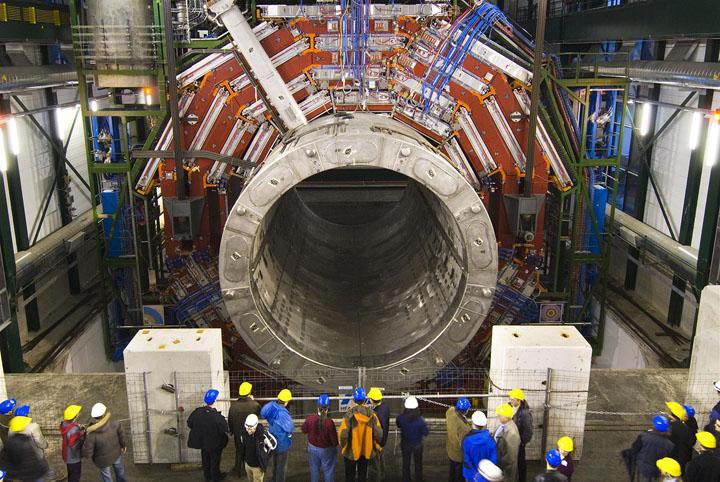 Courtesy of CERN/MCT
Courtesy of CERN/MCTI hate to be the bearer of bad news, but we are all going to be sucked into a black hole of our own creation within the near future.
How, you might ask? This is the difficult part. In layman’s terms, scientists are going to crash little particles of matter together. “But we have been doing that for years,” you might say, and to that, the answer is: never this fast.
At more than 99.9999991 percent of the speed of light, these particles will be traveling faster than humans have ever made anything go, and theoretically fast enough to create a black hole.
This is big; really big. The fundamental theories that have been formulated to explain the interactions of our universe are incomplete. There are processes and reactions that have been too elusive to study up to this point. Hopefully, the Large Hadron Collider will provide the data that is needed to create a conclusive quantum theory.
The LHC was built by the European Organization for Nuclear Research on the border of France and Switzerland. The size of the collider is astounding. At about 17 miles long, the circumference of the collider would take more than five hours to walk around. The protons that will be crashing into one another will be making about 11,000 revolutions per second. All of the technology required to make this happen has cost around $9 billion, which, unfortunately, doesn’t seem like much these days.
Quantum mechanics. If you flinched while reading it, know that I’m right there with you. However, there are some amazing explanations for all the interactions that we never see, but which have created and govern the world we live in. The Standard Model theory currently has been tested to less than 1 percent error, but is missing a critical piece, the Higgs boson, that explains the perception of mass.
If the Higgs boson is discovered, scientists will be able to more effectively study the highly elusive effects of gravity. While gravity may be easy to observe in general, scientists have not been able to describe it with nearly the same precision that they can with quantum physics. It also may open the door to substantiating other, more unusual theories as well.
String theory predicts that there are actually 10 dimensions, instead of the four that we already know exist. There are some scientists who believe this is the ultimate and fundamental world theory. If there are other dimensions curled up within the dimensions that humans already perceive, then there is a chance that the LHC could catch some energy disappearing into one of these. Stephen Hawking, a renowned theoretical physicist, believes that it is the unexpected that will be the most exciting.
Regardless of the results is the presence of the passionate curiosity that has led to every one of the discoveries that have changed our lives. Naysayers aside, we must continue to unearth the unknown, for it is the human predilection for knowledge that will propel our future.
“It stands to the everlasting credit of science that by acting on the human mind it has overcome man’s insecurity before himself and before nature.” &- Albert Einstein






